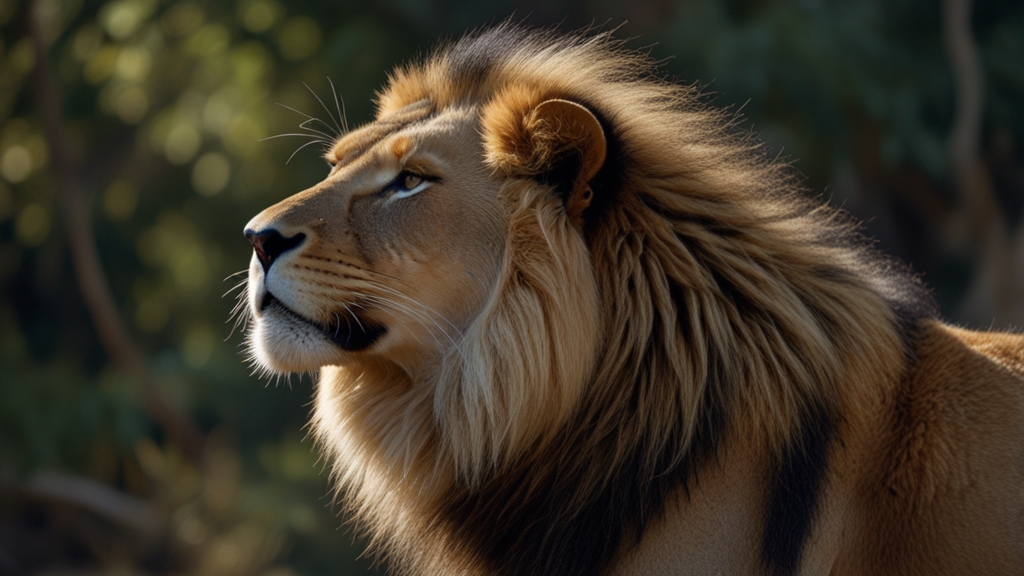Furry Emperors: The Royal Status of Mammals Around the Globe
Throughout history, human cultures around the world have conferred a royal or revered status upon various mammals. These animals have not only been seen as symbols of power, wisdom, and divinity but have also influenced traditions, folklore, and the very structure of societies. From the lion to the elephant, let's explore some of the most iconic mammals that have been elevated to regal ranks across different civilizations.
The Lion: The King of Beasts
Perhaps the most universally recognized royal mammal is the lion. Known as the "King of the Jungle," the lion's regal status transcends borders. In African cultures, lions are often emblematic of strength and bravery. They feature prominently in the folklore of numerous tribes, symbolizing leadership and protection.
In Europe, particularly during the medieval period, lions were frequently used as symbols of nobility and courage. Many royal coats of arms feature lions, demonstrating their importance in heraldry. The British monarchy, for instance, uses three lions passant guardant as a central element of their royal standard.
"The lion, which is mightiest among beasts and does not turn back before any." – Proverbs 30:30
The Elephant: The Monarch of the Land
In contrast to the lion's fierce image, the elephant is revered for its wisdom, longevity, and strength. In Hindu culture, the elephant-headed god Ganesha is a deity of wisdom, prosperity, and remover of obstacles. Elephants are also central to Buddhist symbolism, representing mental strength and Earthly stability.
An interesting tradition can be found in Thailand, where white elephants are considered sacred and royal. Historically, the possession of a white elephant by a king was seen as a sign of divine favor, and these majestic creatures were pampered and revered, reflecting their exalted status.
"The elephant can survive only if forests survive." – Mark Shand
The Tiger: The Striped Sovereign
Another mammal often associated with royalty and power is the tiger. In China, the tiger is considered the king of all land animals and is associated with the highest of virtues. The tiger is one of the twelve animals of the Chinese zodiac and has a prominent place in Chinese culture, embodying courage, strength, and protection.
In India, the tiger holds a national significance and is often associated with the goddess Durga, who rides a tiger and symbolizes the triumph of good over evil. The Bengal tiger, in particular, is an enduring symbol of the country's wildlife heritage.
The Wolf: The Noble Pack Leader
Wolves have long been subjects of fascination and lore. In Rome, the myth of Romulus and Remus, the twin founders of the city, tells of a she-wolf that nursed and protected the twins. This story encapsulates the Roman spirit of tenacity, strength, and the idea of being nurtured by the wild.
In Native American cultures, the wolf is respected as a powerful and wise animal. It is seen as a teacher, embodying loyalty, courage, and social connections. To many tribes, the wolf is a noble creature that embodies the spirit of the wilderness.
Conclusion
The royal status accorded to these mammals is a testament to their profound impact on human cultures and societies. Whether through myths, religious associations, or national symbols, these "furry emperors" continue to inspire awe and respect. They remind us of the deep connections we share with the animal kingdom and the virtues we strive to embody as individuals and as communities.
"Until one has loved an animal, a part of one's soul remains unawakened." – Anatole France
The legacies of these majestic creatures endure through time, teaching us about wisdom, strength, bravery, and the importance of living in harmony with nature. Thus, the royal status of these mammals around the globe is not just about their physical might but also about the timeless qualities they embody and inspire in us all.






